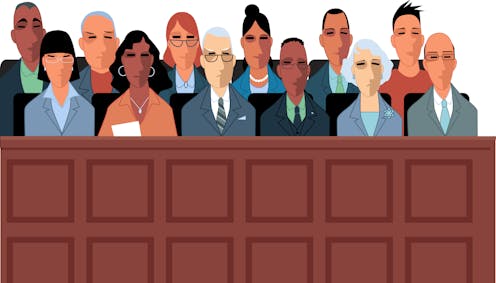
In State v. Linville, the WA Court of Appeals held that the defendant’s numerous criminal charges cannot be “joined” to a charge of leading organized crime.
BACKGROUND FACTS
Following an increase in residential burglaries in Thurston County, law enforcement
officers noticed similarities among several burglaries. Officers ultimately recovered numerous items taken during the burglaries from Linville’s home.
The State charged Linville with 1 count of leading organized crime, 35 counts of
residential burglary, 1 count of attempted residential burglary, 4 counts of first degree burglary, 3 counts of second degree burglary, 39 counts of trafficking in stolen property, 17 counts of first degree theft, 18 counts of second degree theft, 1 count of attempted second degree theft, 3 counts of third degree theft, 5 counts of theft of a firearm, 5 counts of identity theft, 4 counts of unlawful possession of a firearm, 1 count of possession of stolen property, and 1 count of possession of a controlled substance, for a total of 138 charges with numerous deadly weapon sentencing enhancements. The State alleged that Linville was armed with a firearm during the commission of the four first degree burglaries.
At no point did Linville argue that joinder of any offenses was improper under RCW 9A.82.085.
During the jury trial, the State presented testimony from numerous co-defendants who identified Linville as the instigator and leader of the burglary scheme. The co-defendants’ testimony was corroborated by law enforcement officers and victims who described the common characteristics among the burglaries and identified stolen goods recovered from the homes of Linville and his co-defendants. The jury found Linville guilty of 137 offenses, and he was sentenced to 914 months in prison, which included 240 months for four firearm sentencing enhancements.
Linville appealed on the argument that his defense counsel gave ineffective assistance of counsel by failing to move for severance of offenses that were not part of the pattern of criminal profiteering activity from the charge of leading organized crime under RCW 9A.82.085.
COURT’S ANALYSIS & CONCLUSIONS
Ultimately, the Court agreed with Linville. It reasoned that the Sixth Amendment guarantees the effective assistance of counsel in criminal proceedings. To show ineffective assistance of counsel, a defendant must show that (1) defense counsel’s conduct was deficient, and (2) the deficient performance resulted in prejudice. To show deficient performance, Linville must show that defense counsel’s performance fell below an objective standard of reasonableness. To show prejudice, Linville must show a reasonable possibility that, but for counsel’s purportedly deficient conduct, the outcome of the proceeding would have differed.
- Counsel Rendered Deficient Performance.
First, the Court reasoned that RCW 9A.82.085 states the following, in relevant part:
“In a criminal prosecution alleging a violation of leading organized crime, the state is barred from joining any offense other than the offenses alleged to be part of the pattern of criminal profiteering activity.”
RCW 9A.82.010(12) defines “pattern of criminal profiteering activity” as “engaging in at least three acts of criminal profiteering.” RCW 9A.82.010(4) defines “criminal profiteering” as:
“any act, including any anticipatory or completed offense, committed for financial gain, that is chargeable or indictable under the laws of the state in which the act occurred and, if the act occurred in a state other than this state, would be chargeable or indictable under the laws of this state had the act occurred in this state and punishable as a felony and by imprisonment for more than one year, regardless of whether the act is charged or indicted, as any of the following: . . . .”
RCW 9A.82.010(4) then lists 46 crimes and their defining statutes. First and second degree theft, trafficking in stolen property, leading organized crime, and identity theft are included in the list. However, residential burglary, first degree burglary, second degree burglary, attempted residential burglary, theft of a firearm, third degree theft, unlawful possession of a firearm, and possession of stolen property are NOT included in the list.
Consequently, the Court reasoned that a plain reading of the statutes made it clear that the State was barred from joining charges of residential burglary, first degree burglary, second degree burglary, attempted residential burglary, theft of a firearm, third degree theft, unlawful possession of a firearm, and possession of stolen property to Linville’s prosecution for leading organized crime.
“The unreasonable failure to research and apply relevant statutes without any tactical purpose constitutes deficient performance. Here, defense counsel’s failure to object to the State’s improper joinder of charges was unreasonable and constitutes deficient performance.”
2. Counsel’s Deficient Performance Resulted in Prejudice to the Defendant’s Case.
The Court said that in order to succeed on his claim of ineffective assistance of counsel, Linville must also show that but for his attorney’s deficient performance the outcome of the trial would have differed, and therefore the deficient performance was prejudicial.
To this end, the Court reasoned that this issue is somewhat different than the related issue of discretionary joinder or severance pursuant to CrR 4.4(b). Under CrR 4.4(b), a trial court must grant a motion to sever offenses if it determines that “severance will promote a fair determination of the defendant’s guilt or innocence of each offense.” A defendant seeking such a severance under CrR 4.4(b) must show that a trial involving all counts would be so manifestly prejudicial as to outweigh the concern for judicial economy.
In contrast, the Court explained that RCW 9A.82.085 leaves no room for the trial court’s discretion. Under that statute, the State is barred from joining offenses other than those alleged to be part of the criminal profiteering activity in a prosecution for leading organized crime.
“Because of defense counsel’s failure to object, Linville was improperly tried for 138 total charges and convicted of 137 offenses,” said the Court. “Had counsel properly objected to the joinder, 56 of the charges, including all of the burglary charges, would have been severed, the trial would not have included convictions for those 56 improperly joined charges, and the outcome of this trial would have been different.”
The Court extrapolated the prejudicial consequences of the joinder. It explained that each of the four firearm enhancements – which resulted in a mandatory minimum sentence of 240 months – were associated with the four counts of first degree burglary. The firearm enhancements would not have been considered but for defense counsel’s deficient performance.
“The improper joinder had additional prejudicial consequences,” stated the Court. For example, by improperly joining four charges of unlawful possession of a firearm, the State was permitted to introduce evidence of Linville’s prior felony for possession of a controlled substance without a prescription. This prior conviction evidence was highly prejudicial given that the State’s theory was that Linville’s crime ring was motivated by drugs.
Also, the State relied heavily on the burglaries as evidence of Linville’s guilt for leading organized crime. A jury separately considering the burglary charges would not necessarily have heard testimony of Linville’s accomplices accusing him of orchestrating a broad scheme.
Consequently, the Court held that Linville’s defense counsel rendered ineffective assistance of counsel by failing to object to the joinder of offenses in violation of RCW 9A.82.085. The Court therefore reversed Linville’s convictions and remanded them back to the trial court for separate trials.
My opinion? Good decision. A defense attorney’s failure to sever “joined” offenses into separate trials can have profoundly devastating effects. Put simply, juries are more biased against the defendant in a joinder trial versus a trial with a single charge. Consequently, they are more likely to convict on a particular charge in a joinder trial with multiple charges than in a trial on the same single charge. It’s imperative that competent defense attorneys sever counts whenever possible.
Please contact my office if you, a friend or family member are charged with a crime. Hiring an effective and competent defense attorney is the first and best step toward justice.










